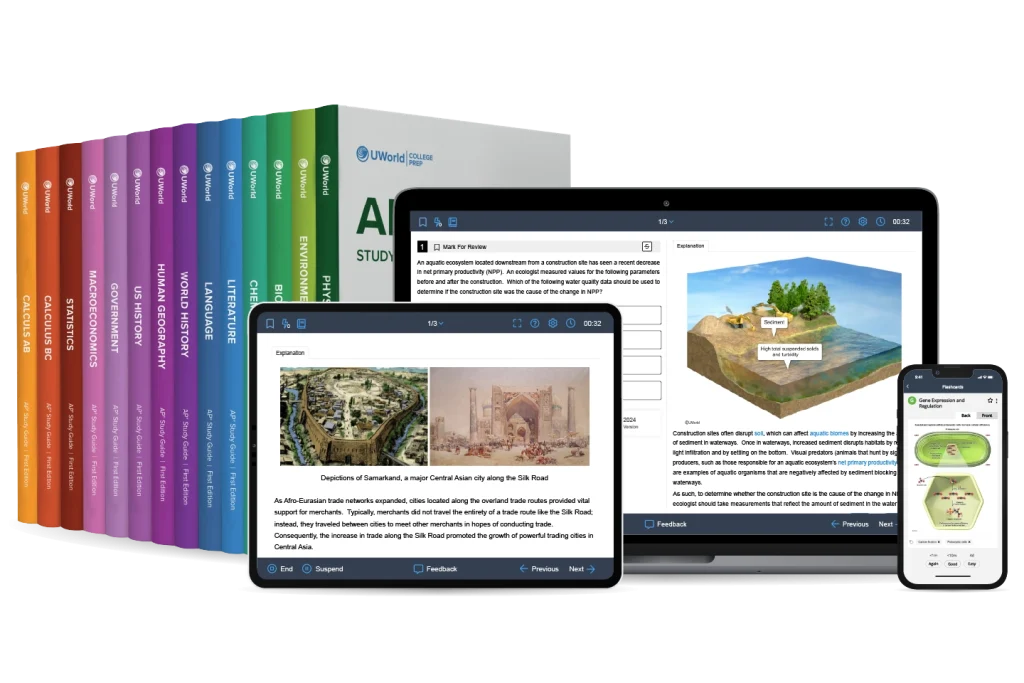AP® Exam Prep Courses: Your Fast Track to Success!
Advanced Placement® is hard - it’s meant to be. But we help make really hard stuff easy to understand.
What You’ll Love About UWorld’s AP
- Expert-Led AP Video Lessons That Make Sense
- Print and Digital Study Guide on Every Topic
- Easy to Remember Detailed Visual Explanations
- Built-In Support Like Vocab, Hints, Alternative Methods
- Study Planner You Can Set to Your Schedule
- Thousands of Score-Boosting Exam-Level Questions
- Timed Practice to Master the Test—and the Clock
- Track Your Progress with a Personalized Dashboard
- Customizable Practice with On-the-Go App Access
- Flexible Subscription Length and Payment Options
A 5 is in Your Future
Understand the principles of living organisms and ecosystems, learn scientific inquiry and biological models, and cover molecular biology, genetics, evolution, and ecology.
Grasp practical calculus uses and strengthen your understanding of key Calculus AB concepts: limits, derivatives, integrals, and the Fundamental Theorem of Calculus.
Master extended calculus and review sequences and series, parametric equations, polar coordinates, and vector-valued functions.
Examine the properties of matter, understand their interactions, and cover essential topics such as atomic structure, chemical bonding, thermodynamics, and reaction kinetics.
Analyze strategies in complex writings, improve composition and argument skills, and cover essential elements of rhetoric, synthesis, and argumentation.
Discover poetry, prose, and drama, focusing on literary techniques, themes, and character analysis. Gain insights into various genres and historical contexts.
Explore the natural world's intricacies and human-environment interactions. Understand today's pressing environmental issues and examine potential solutions.
Explore migration, land use, population pyramids, urbanization, and cultural landscapes. Understand human-environment interactions, spatial relationships, and geography.
Focus on supply and demand, inflation, economic growth, and monetary and fiscal policy. Understand how these principles shape the economy and influence policy decisions.
Understand fundamental physics principles: kinematics, dynamics, circular motion, simple harmonic motion, and rotational motion. Develop analytical and problem-solving skills.
Study learning theories, thinking processes, development stages, and mental disorders. See how these ideas apply to real life and deepen your understanding of psychology.
Learn probability, experimental design, and inferencing from samples. Master hypothesis testing, confidence intervals, and regression analysis.
Practice questions on the Constitution, shared power, civil rights, political beliefs, and policy. Learn how parties, groups, and media influence government decisions.
Explore U.S. history from the colonial period to today. Analyze primary sources, develop critical thinking skills, and master the connections between historical events and current issues.
Connect major world regions and historical events. Explore state-building, economic systems, cultural developments, and social structures from 1200 CE to today.
